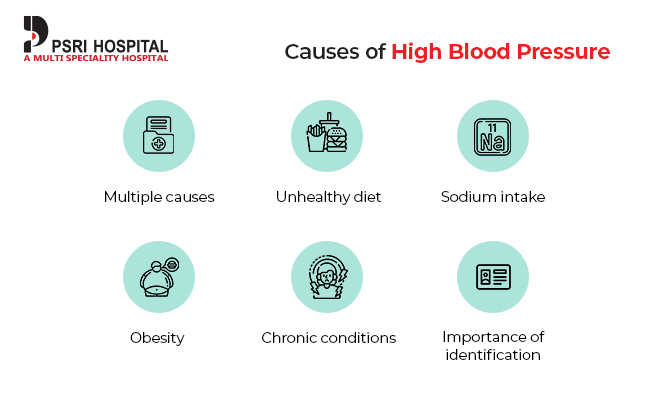Physical Address
304 North Cardinal St.
Dorchester Center, MA 02124
Physical Address
304 North Cardinal St.
Dorchester Center, MA 02124

Contents [hide]
High blood pressure, also known as hypertension, is a significant risk factor for cardiovascular diseases such as heart disease, stroke, and renal failure. While hypertension is more commonly associated with older adults, there has been a concerning rise in the prevalence of high blood pressure among young adults aged 18-24 and middle-aged individuals aged 25-44. As of 2024, hypertension ranks as the third major risk factor for cardiovascular diseases globally, leading to millions of fatalities each year.
Research has shown that lifestyle factors play a crucial role in the development of hypertension in young adults. Factors such as smoking, excessive alcohol consumption, obesity, sedentary behavior, high salt intake, and unhealthy dietary habits have been identified as key contributors to high blood pressure. Additionally, risk variables like illiteracy, lack of health awareness, and societal norms that prioritize men over women have also been linked to hypertension among young adults.
Studies have highlighted the detrimental effects of smoking and alcohol consumption on blood pressure levels in young adults. Research conducted in various countries has shown a significant association between cigarette smoking, alcohol use, and the development of hypertension. Young individuals who engage in these behaviors are at a higher risk of developing high blood pressure compared to non-smokers and non-drinkers.
Obesity, high body mass index (BMI), and poor dietary choices have been identified as major risk factors for hypertension in young adults. Consuming a diet high in salt, saturated fats, and low in fruits and vegetables can contribute to elevated blood pressure levels. Additionally, a sedentary lifestyle and lack of physical activity further exacerbate the risk of developing hypertension among young individuals.
Family history plays a crucial role in the development of hypertension, as individuals with a family history of high blood pressure are more likely to develop the condition themselves. Genetic predisposition, combined with environmental factors such as smoking, alcohol consumption, and poor dietary habits, can significantly increase the risk of hypertension in young adults. Early screening and awareness of family history can help in the prevention and management of hypertension.
Socioeconomic status and education level also play a role in the prevalence of hypertension among young adults. Individuals from lower socioeconomic backgrounds may have limited access to healthcare, nutritious foods, and health education, increasing their susceptibility to high blood pressure. Illiteracy and lack of health literacy further compound the problem, making it challenging for individuals to make informed decisions about their health.
Preventing high blood pressure in young adults requires a multifaceted approach that addresses lifestyle factors, genetic predisposition, and socioeconomic determinants. Encouraging healthy habits such as regular exercise, a balanced diet, limited salt intake, and avoidance of smoking and excessive alcohol consumption can help reduce the risk of hypertension. Additionally, raising awareness about the importance of early screening, family history, and maintaining a healthy weight is crucial in managing blood pressure levels.
As of 2024, the burden of hypertension among young adults continues to be a growing concern for public health authorities worldwide. By understanding the various factors that contribute to high blood pressure in young adults and implementing targeted interventions, it is possible to reduce the prevalence of hypertension and its associated complications in this vulnerable population.